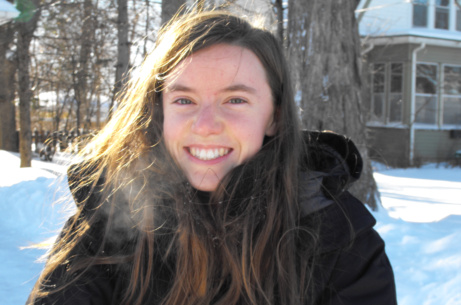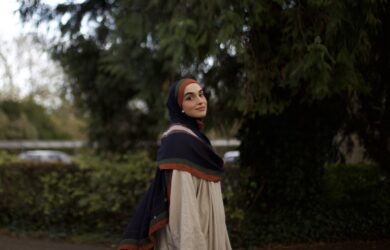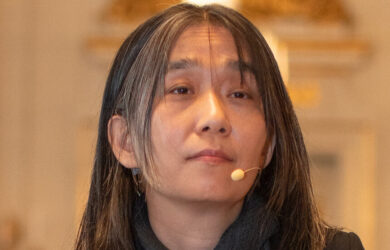
Nicole Person-Rennell will dance professionally while doing her studies.
Nicole Person-Rennell is a busy person. Not only is she studying medicine and embarking on an MPhil in Public Health, but she is also a professional dancer.
While an undergraduate and a trainee doctor she has managed to combine dancing in a professional group and her studies. It is something she plans to continue even if it might be slightly more difficult across the Atlantic.
“I have danced all my life,” she says. Nicole is a principal dancer in AZDance group, a professional contemporary ballet group. They do a regular December show and Nicole is planning to go back as a guest artist this year. It will be her eighth season. A lot of the pieces she will dance are ones she has done before and she plans to practise with her twin sister, who is also a dancer. She will learn any new sequences via online videos.
She says she is very lucky to be able to combine her studies and her dancing. “It’s such a blessing to be able to do both,” she says. Nicole is just one of the new intake of 90 Gates scholars who hail from 29 different countries and who have just completed an orientation weekend in the Lake District to get to know each other. They will attend a special welcome dinner at Fitzwilliam College on Thursday.
Although music and performing was a big part of her background – Nicole plays the flute and sings in a choir – healthcare also played a huge role. She grew up in Phoenix, Arizona and her mother, now a nursing lecturer, was a hospice manager.
It was not until high school that she considered medicine as a career, but she was not entirely convinced so as an undergraduate at Arizona State University she majored in global studies. Although she had grown up in Phoenix, her family had travelled widely when she was young and she had a keen interest in the world.
As Nicole was a Flinn Scholar during her university course, a scholarship programme that provides study abroad funding in addition to university funding, she decided to take up an opportunity to study abroad. She looked at different places. Being very interested in public health, she decided to go to South Africa where she worked on a project on domestic violence and public health. She interviewed women and conducted focus groups and found that, although South Africa had progressive policies on paper, what was happening on the ground was very different. “There was no connection between policy and women’s experience, especially with women from lower socio-economic status,” she says.
It was through a combination of her global studies degree and her experiences in South Africa that she decided that she needed to go to medical school and she applied to Mayo Medical School in Minnesota. She says she wanted to help people individually, but she was also keen to have a much broader impact on people’s health, to address the reasons people got sick.
While at university, Nicole worked at the largest domestic violence shelter in the state and has taken part in a dance education project around domestic violence issues.
At medical school, she has been involved in three research projects. They include examining post-partum depression outcomes, medical students’ attitudes in service projects and an arts-based anatomy research project. Using dance, music and theatre the project explored different learning models.
Nicole has also been one of the student coordinators at a smoking cessation clinic for people with no health insurance. It ran 12-week programmes which provided medication and counselling to help people wean themselves off nicotine. “The burden tends to fall more on the poor since we now have more information about the effects of smoking. Getting people off smoking is one thing which can have a huge impact on their health,” she says.
She was interested in applying to Cambridge because the University is known for its research into the social determinants of health. She is two years into her medical training so when she finishes her MPhil Nicole will return to the US and finish her training then do her residency. She then hopes that she will be able to combine her medical expertise and her interest in public health and address both the individual and the wider social causes of ill health.












